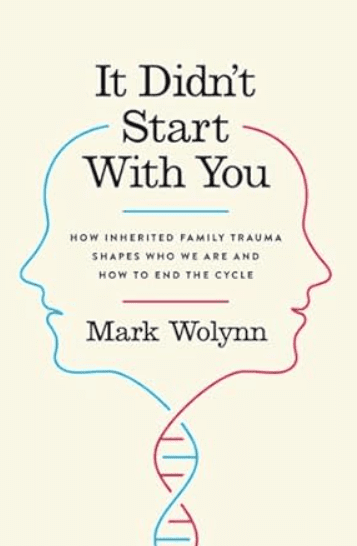The foundation of a child’s future is often laid in the heart of their home: the parenting they receive. Immature parents, characterized by a lack of emotional maturity, responsibility, and understanding, can cast a long, complex shadow on the lives of children. This essay explores the multifaceted impacts of immature parenting on the development and future behavior of individuals.
Understanding Immature Parents
Immature parents & parenting can manifest in various forms: emotional unavailability, inconsistency, neglect, or even overindulgence. Such parents might struggle with self-regulation, empathy, and may prioritize their needs or emotions over those of their child. This instability in parenting creates a chaotic environment for a child’s development.
Psychological Impacts on Children
Children raised by immature parents often face emotional and psychological challenges. The unpredictability of their home environment can lead to chronic stress, anxiety, and a lack of a secure attachment. This insecure attachment style can result in difficulties in forming stable relationships in adulthood. Moreover, these children might struggle with self-esteem issues, as they may internalize the chaos and inconsistency of their upbringing.
Behavioral Consequences in Adulthood
The effects of immature parenting extend into adulthood in various behavioral patterns. Adults who grew up with immature parents may exhibit:
- Difficulties in Relationships: Struggles with trust, intimacy, and maintaining long-term relationships are common. They might either become overly dependent or excessively distant in their relationships.
- Impaired Emotional Regulation: These individuals might have trouble managing their emotions, leading to mood swings, anger issues, or even depressive tendencies.
- Repeating Patterns: There’s a risk of perpetuating the cycle of immature parenting, as they may unconsciously mirror the parenting style they experienced.
- Challenges in Professional Settings: Difficulty in handling criticism, managing stress, and maintaining professional relationships can be a hurdle in their career growth.
Social and Economic Implications
The repercussions of immature parenting are not limited to the individual but ripple out into society. These adults may struggle with social integration, leading to increased rates of mental health issues, substance abuse, and even challenges in maintaining steady employment. This, in turn, can have economic implications, such as increased healthcare costs and a need for social support systems.
Coping Mechanisms and Healing
Despite these challenges, adults from immature parenting backgrounds can find paths to healing and growth. Therapy and counseling can offer significant help in understanding and processing their childhood experiences. Learning healthy coping mechanisms, emotional regulation, and building a supportive network are crucial steps towards healing.
The Role of Resilience
Resilience plays a vital role in overcoming the adversities of immature parenting. This resilience can be fostered through positive relationships with other adults, such as teachers, mentors, or relatives who provide the emotional support and stability missing in their primary upbringing. Engaging in activities that build self-esteem and a sense of accomplishment can also strengthen resilience.
Preventive Measures and Education
Addressing immature parenting requires societal awareness and preventive strategies. Educating potential and new parents about the importance of emotional maturity in parenting is vital. Parenting programs, community support groups, and resources can equip parents with the tools to grow and provide a more stable environment for their children.
Mindfulness Steps to overcome the pain
Overcoming the pain of having immature parents through mindfulness involves a series of steps, each focusing on harnessing the power of present-moment awareness to heal and grow. Here is a step-by-step guide:
1. Acknowledge and Accept Your Feelings
The first step is to acknowledge the emotions you carry from your experiences with immature parents. Whether it’s anger, sadness, or confusion, mindfulness begins with recognizing and accepting these feelings without judgment. This acceptance is crucial in understanding that your feelings are valid and an understandable response to your experiences.
2. Practice Mindful Breathing
Start with simple breathing exercises. Sit in a comfortable position, close your eyes, and focus on your breath. Observe the sensation of air entering and leaving your body. Mindful breathing acts as an anchor, bringing you back to the present moment and helping to calm your mind.
3. Engage in Daily Meditation
Incorporate regular meditation into your daily routine. Meditation helps in developing a deeper sense of awareness and detachment from negative thought patterns. There are many forms of meditation, such as guided meditation, which can be particularly helpful for beginners.
4. Body Scan for Emotional Awareness
Practice body scanning, a mindfulness technique where you focus on each part of your body in turn and observe any sensations or emotions associated with it. This practice helps in recognizing how your emotions from past experiences manifest physically in your body.
5. Journaling with Mindfulness
Keep a journal to document your thoughts and feelings. Write down your experiences with your parents and how they make you feel. The act of writing mindfully can be therapeutic and can help in processing your emotions more effectively. Mindful journaling can help you let go of your thoughts.
6. Cultivate Self-Compassion
Mindfulness teaches self-compassion. Recognize that the difficulties you faced were not your fault and that you deserve kindness and understanding. Practicing self-compassion can involve affirmations, self-care routines, and treating yourself with the same kindness you would offer a good friend.
7. Mindful Listening to Inner Child
Spend time listening to your inner child, the part of you that experienced hurt and neglect. Acknowledge its pain and offer comfort. This can be done through meditation, where you visualize your younger self and provide the support and love that you needed. Healing the inner child is key to your transformation.
8. Seek Mindful Relationships
As you become more mindful, you’ll start to recognize patterns in your relationships that may stem from your upbringing. Use mindfulness to form healthier relationships, ones that are based on mutual respect and understanding.
9. Mindful Professional Help
Sometimes, the guidance of a therapist or counselor, especially one trained in mindfulness-based therapies, can be invaluable. They can provide a safe space for you to explore your feelings and experiences, offering professional insights and techniques to aid in your healing process.
10. Practice Gratitude and Positive Affirmations
Focus on the aspects of your life that you are grateful for. Practicing gratitude can shift your perspective from what was lacking in your childhood to the positives in your present life. Alongside, use positive affirmations to reinforce your self-worth and resilience.
11. Engage in Mindful Activities
Participate in mindful hobbies for relaxing that require you to be fully present, such as yoga, gardening, painting, or even cooking. These activities not only keep you grounded in the present moment but also provide a sense of accomplishment and joy.
12. Set Boundaries Mindfully
Learn to set healthy boundaries with your parents if they are still part of your life. This involves communicating your needs and limits clearly and calmly. Mindfulness helps in recognizing when your boundaries are being tested and in maintaining them without guilt or anger.
13. Reflect on Lessons Learned
Use mindfulness to reflect on the lessons you have learned from your experiences. Understanding how these experiences have shaped you can empower you to grow stronger and wiser.
14. Mindful Forgiveness
If and when you’re ready, consider the role of forgiveness, not as an endorsement of your parents’ immaturity but as a means to free yourself from the hold of past hurts. Mindful forgiveness is a process and might take time, but it can be profoundly healing
15. Continuous Mindful Growth
Remember that healing is an ongoing journey. Continue to practice mindfulness as a way of life, not just a tool for overcoming past pain. It will support your continuous growth and help you live a more conscious, fulfilling life.
By following these steps, you can use mindfulness to not only overcome the pain of having immature parents but also to foster a deeper understanding of yourself, cultivate inner peace, and build a life defined by your own terms of health and happiness.
Conclusion Immature Parents
Immature parenting is a complex issue with far-reaching effects on the future of children. While the challenges it presents are significant, they are not insurmountable. With the right support, understanding, and intervention, individuals can overcome these early adversities and lead fulfilling lives. Society’s role in supporting and educating parents can not be understated in breaking the cycle of immature parenting. The future of many children depends on the maturity and emotional intelligence we bring to our parenting roles.



